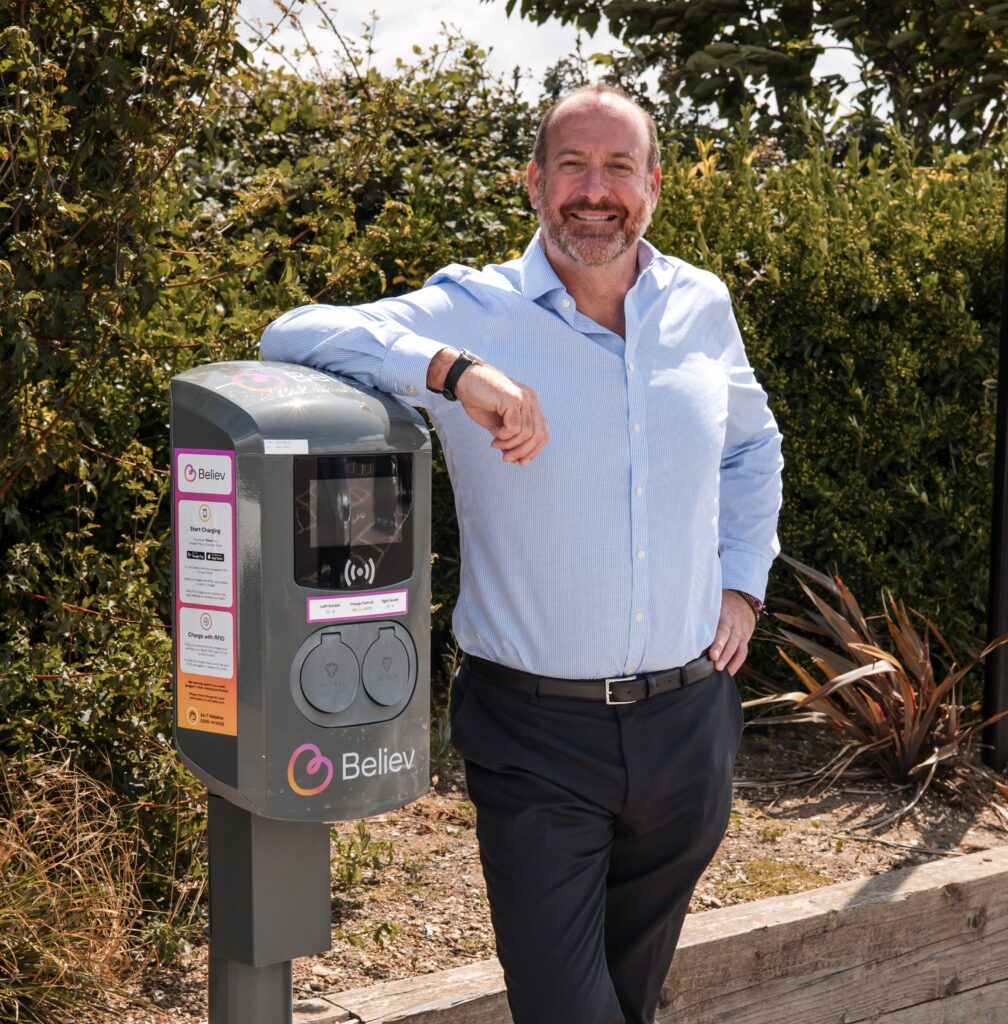To mark World EV day, we sat down with Chief Marketing Officer and Interim CEO of Believ, Perran Moon, to discuss some of the most pressing issues in the switch to electric and how charge point operators can support local authorities in their journey to an electric future.
Why is it important to you/Believ to mark World EV day?
World EV day is a crucial date in our calendar, as it spotlights perhaps the single largest solution to cleaner air and reduced carbon emissions – electric vehicles.
The climate crisis is existential. We need to significantly reduce carbon emissions and our reliance of fossil fuels, for a brighter future. We need to do it now and, crucially, we need to do it together.
To do this, we not only have to raise awareness of the cause, but how charge point operators, businesses, local authorities and government can work together to help communities across the UK make the switch to an electric future and ensure no one is left behind.
We at Believ are committed to a just transition for all. It’s why we are hardware agnostic and can install all charging speeds, through considered collaboration that takes into account all of variables and nuances that a business or local authority has to address. It is this type of holistic approach that will secure cleaner air for all.
What are going to be the biggest challenges to the industry over the next year?
The greatest challenge facing the industry is the speed with which the roll-out of charging infrastructure is progressing. To date it has been glacially slow.
Access to well-intended but, to some extent, unnecessary large-scale grant funding is having an adverse impact on the widescale roll out we desperately need. Funding available to local authorities has been delayed multiple times and is proving to be a more challenging process for local authorities to access. It’s also slowed the rate at which local authorities are going out to tender, when they could actually get charge points in the ground much more quickly, if they were to pursue alternative funding routes.
Fully-funded charge point operators like Believ are ready, willing and able to install always-on charge points much more quickly and at zero cost to the taxpayer, negating the need to use up precious public funds. Such businesses are on standby, with plenty of charge point stock, knowledge and experience, ready to pick up the baton when local authorities patience wears thin.
A second issue facing the industry is VAT. An unfair 20% VAT is placed on those who are obliged to use on-street public access charging, when off-street, private domestic charging is only 5% VAT. Why have we placed an unjust barrier to those who do not have a private driveway and the opportunity to charge from home?
EV charging needs to be accessible to all, and all at the same VAT rate. It can’t just be a luxury for a privileged few.
To combat this, Believ is actively supporting ChargeUK, the collective voice for charge point operators in the UK, to lobby in favour of a single and fair tax for all, so those charging on street are not paying more, simply because they live in an apartment or a house with no drive.
What will be the most important factor in creating charge point equity for all?
Rather than everyone talking about equality, and ensuring no-one is left behind, we need to be taking action and tough decisions now.
Public funding needs to be targeted specifically at those areas of higher social deprivation and rural areas, where there is a much weaker commercial case for the private sector to be rolling out infrastructure. The private sector meanwhile should be accelerating the rapid rollout out of infrastructure across the UK, where there is a strong commercial case for it. We know what speeds of charge point need to be installed where to meet the needs of both today’s EV drivers and tomorrows. The momentum for movement away from the reliance of fossil fuels is not going to slow, so we need to make sure all communities are ready and willing to transition, and not just those in our more affluent cities and towns.
A national scrappage scheme, along similar lines as the very successful scheme launched in 2008, whereby the automotive industry match-funded Government support, could see the rapid removal of the most polluting vehicles from UK roads, replaced by cleaner, greener EVs, with all the resultant benefits of reductions in CO2 emissions and improved air quality. Government support could be diverted from existing and unnecessary EV infrastructure funding to pay for such a scheme.
What challenges do local authorities face and how can Believ help?
The largest challenge by far is the speed in which local authorities are getting charge points in the ground.
Proposition’s such as Believ’s fully funded model, full complement of ‘always-on’ charging technologies, and capacity to deliver at scale and pace, has to be the way we accelerate this urgently required infrastructure.





